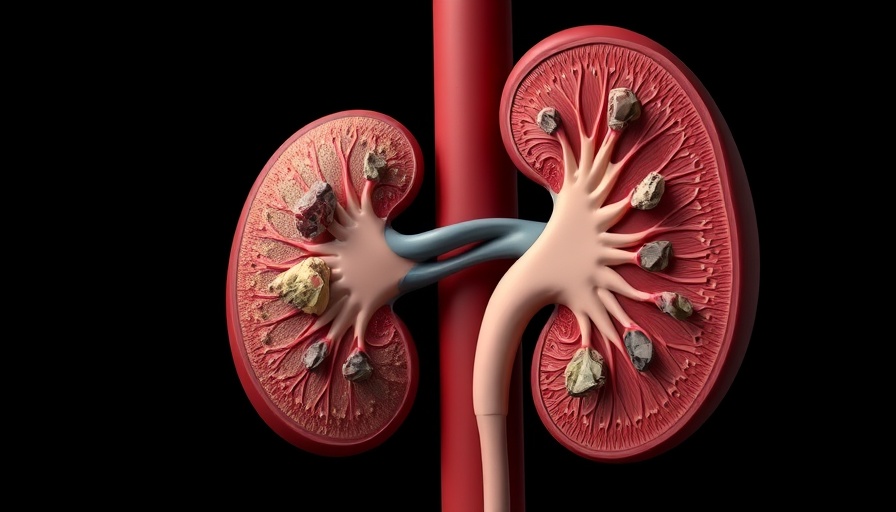
Understanding the Risks: Chlorthalidone and Kidney Stones
The long-acting diuretic chlorthalidone, often used to manage hypertension, has been found to potentially increase the risk of kidney stones in adults with a history of these painful conditions. This insight emerged from recent research presented at the National Kidney Foundation Spring Clinical Meetings, shedding light on a crucial consideration for both patients and healthcare providers.
The Study Breakdown: What the Researchers Found
In a significant study involving over 13,500 adults aged 65 and older, researchers sought to compare the effects of chlorthalidone with another diuretic, hydrochlorothiazide. Participants were randomly assigned to either continue with hydrochlorothiazide or switch to chlorthalidone, tracking their health outcomes over an average of 4.2 years.
The results were intriguing: while the overall occurrence of kidney stones was similar between the two groups—4.9% for chlorthalidone users compared to 5.2% for hydrochlorothiazide—the data revealed a notable interaction among patients with a previous kidney stone history. This reinforces the importance of evaluating patient history before making treatment decisions.
Why This Matters to Concierge Medical Practices
For concierge medicine practitioners focused on comprehensive care, understanding these findings is paramount. Engaging deeply with patients means considering their entire medical history, especially when prescribing medications that could heighten risks. By discussing potential side effects like the increased risk of kidney stones, you establish transparency, enhancing trust in your practice.
Practical Takeaways for Medical Professionals
Here are some practical insights derived from this research that can help you improve patient care and bolster your practice’s reputation:
- Conduct Thorough Histories: Always assess your patients' history with kidney stones when prescribing diuretics like chlorthalidone.
- Educate Your Patients: Make sure your patients are aware of all potential risks associated with their medications. Education fosters better patient compliance and trust.
- Enhance Communication: Use these insights to initiate conversations with patients about their treatment plans. Personalized care leads to better patient outcomes.
Looking Ahead: Future Research and Trends
As research continues to evolve, the medical community will gain a deeper understanding of the long-term impacts of medications like chlorthalidone. Future studies may further clarify the relationship between diuretics and kidney stones, opening the door for more tailored treatment strategies.
Conclusion: An Ongoing Journey in Patient Care
Navigating patient care means staying informed about the latest research and its implications. As a concierge practice, your commitment to comprehensive care not only elevates patient engagement but also solidifies your place as a trusted, top-tier provider in your community. Stay proactive about educating yourself and your patients, and always be ready to adapt your strategies based on new insights.
As you embark on this journey, consider how you can integrate these findings into your ongoing patient care strategies. Keeping patients informed and engaged is key to maintaining your practice's integrity and success.
 Add Row
Add Row  Add
Add 






Write A Comment